Analysis of Health Disparities and Racism in Aboriginal Australians
VerifiedAdded on 2022/08/28
|5
|680
|37
Homework Assignment
AI Summary
This assignment explores the significant health disparities between Aboriginal and non-Indigenous Australians, focusing on key contributing factors such as social determinants (education, income, employment, housing), lifestyle choices, and access to quality healthcare facilities. It examines how these factors are interconnected and influence health outcomes. The assignment also delves into the impact of racism as a major determinant of health and a driver of health inequalities, analyzing its effects on mental health and well-being. It emphasizes the importance of addressing racism to achieve positive health outcomes and the role of governmental authorities and health organizations in mitigating its impact. The assignment includes references to relevant research and studies supporting the analysis.
1 out of 5
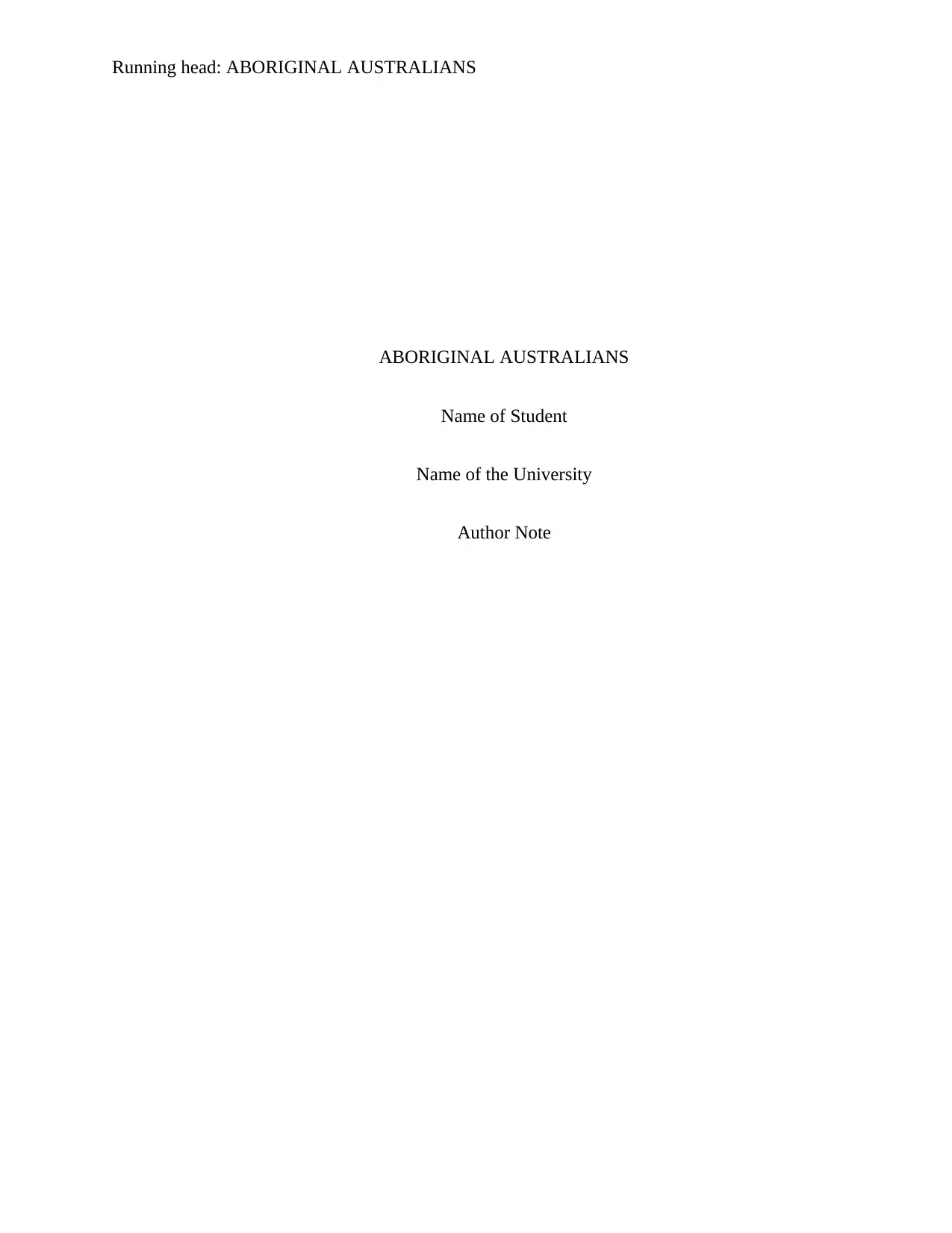
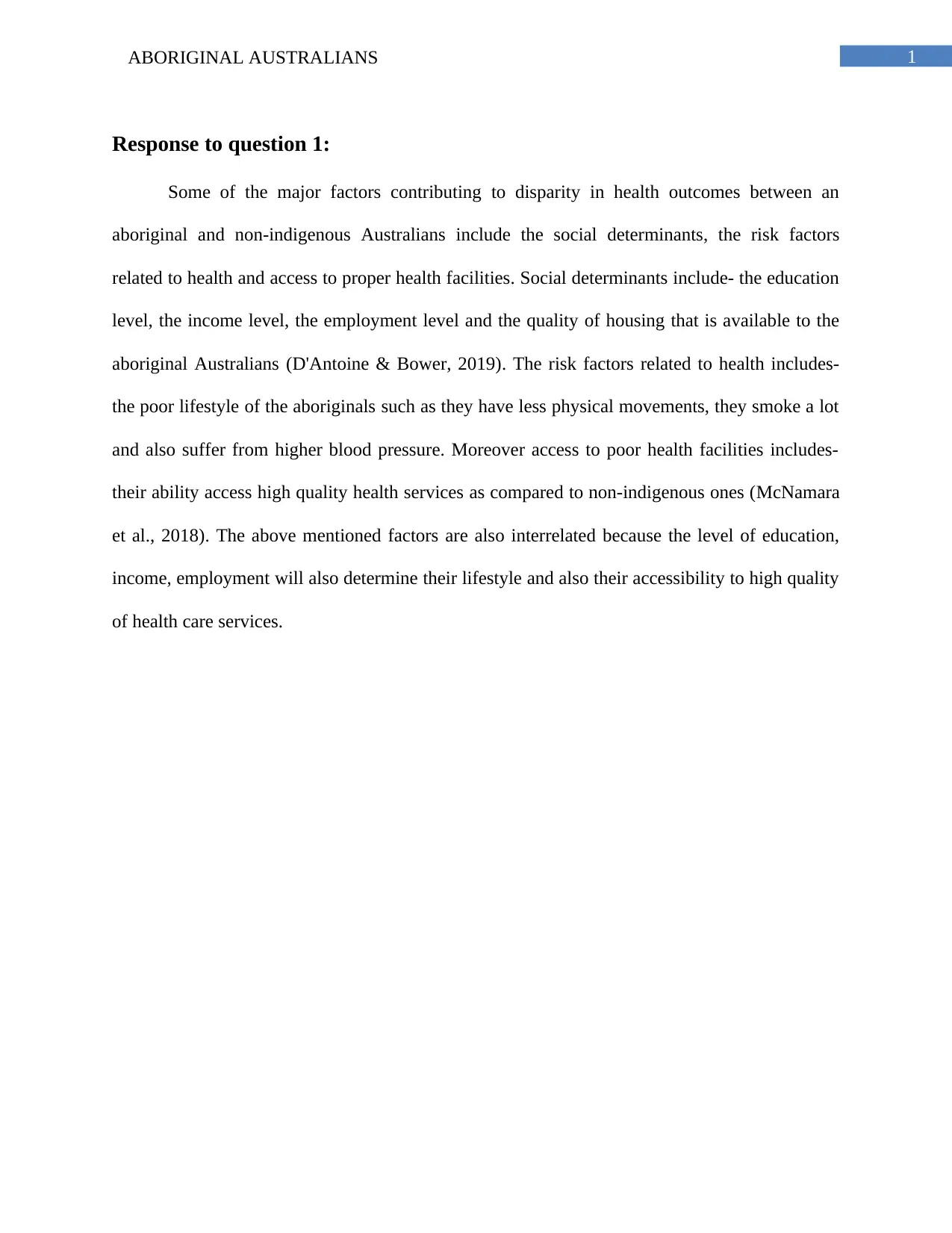
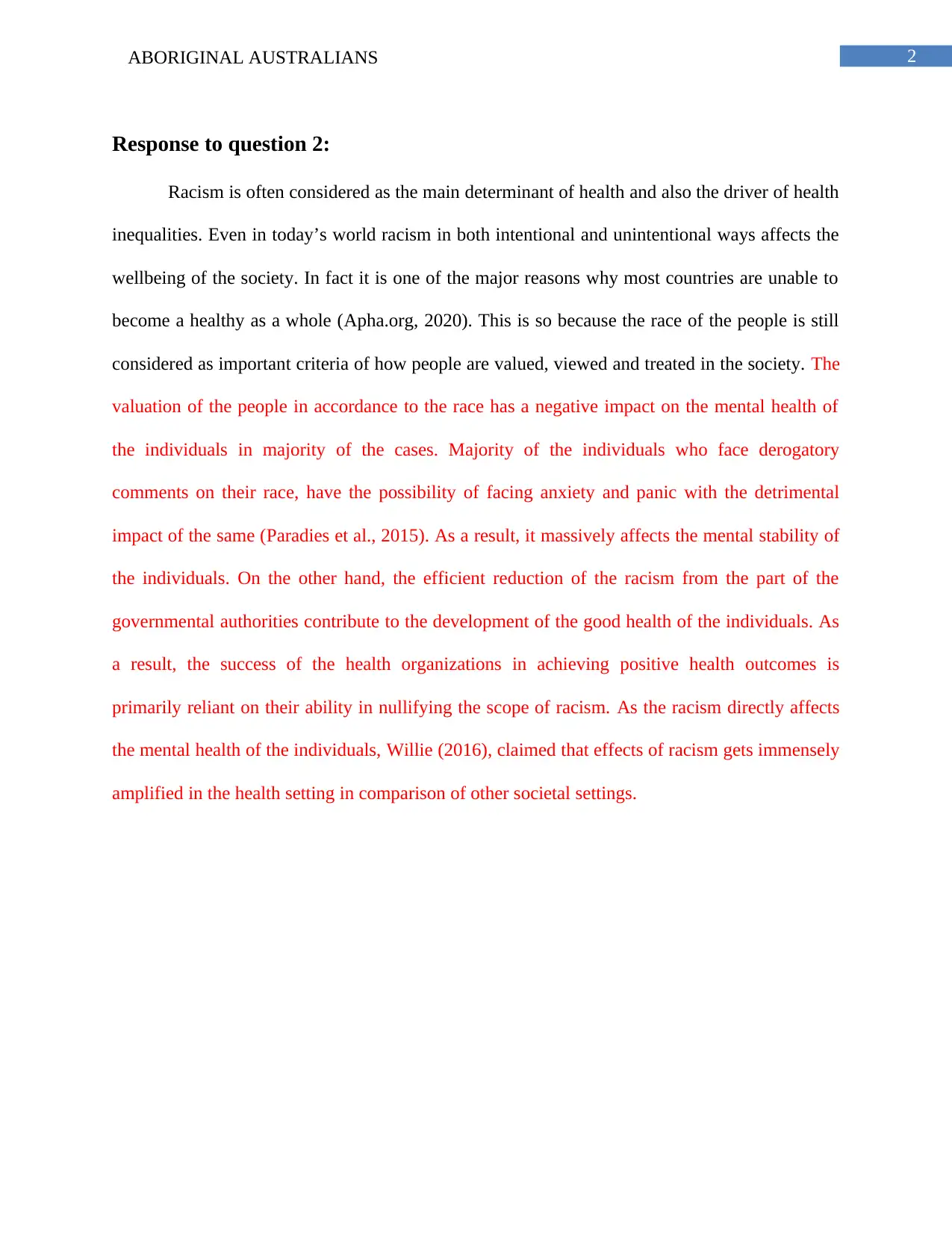

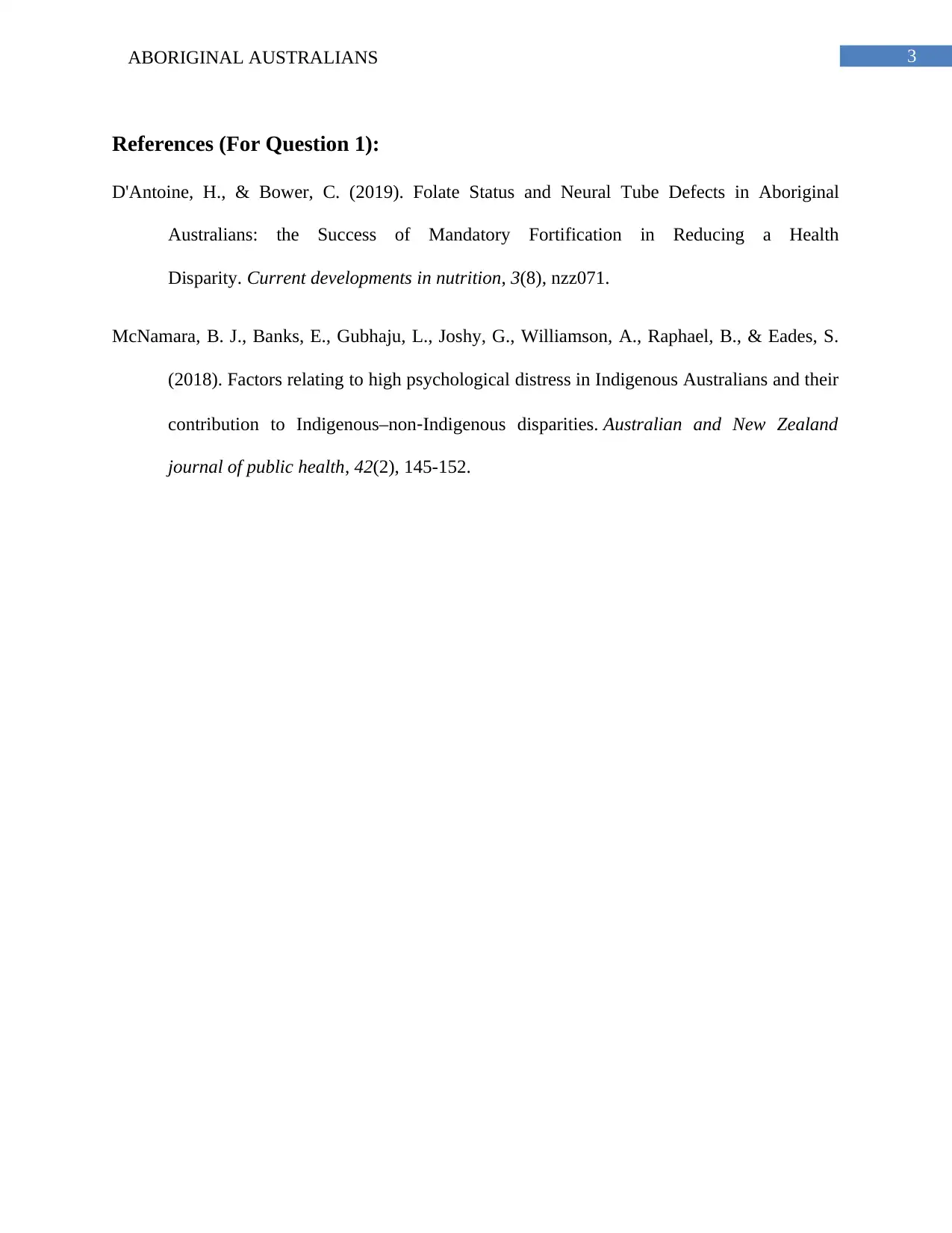
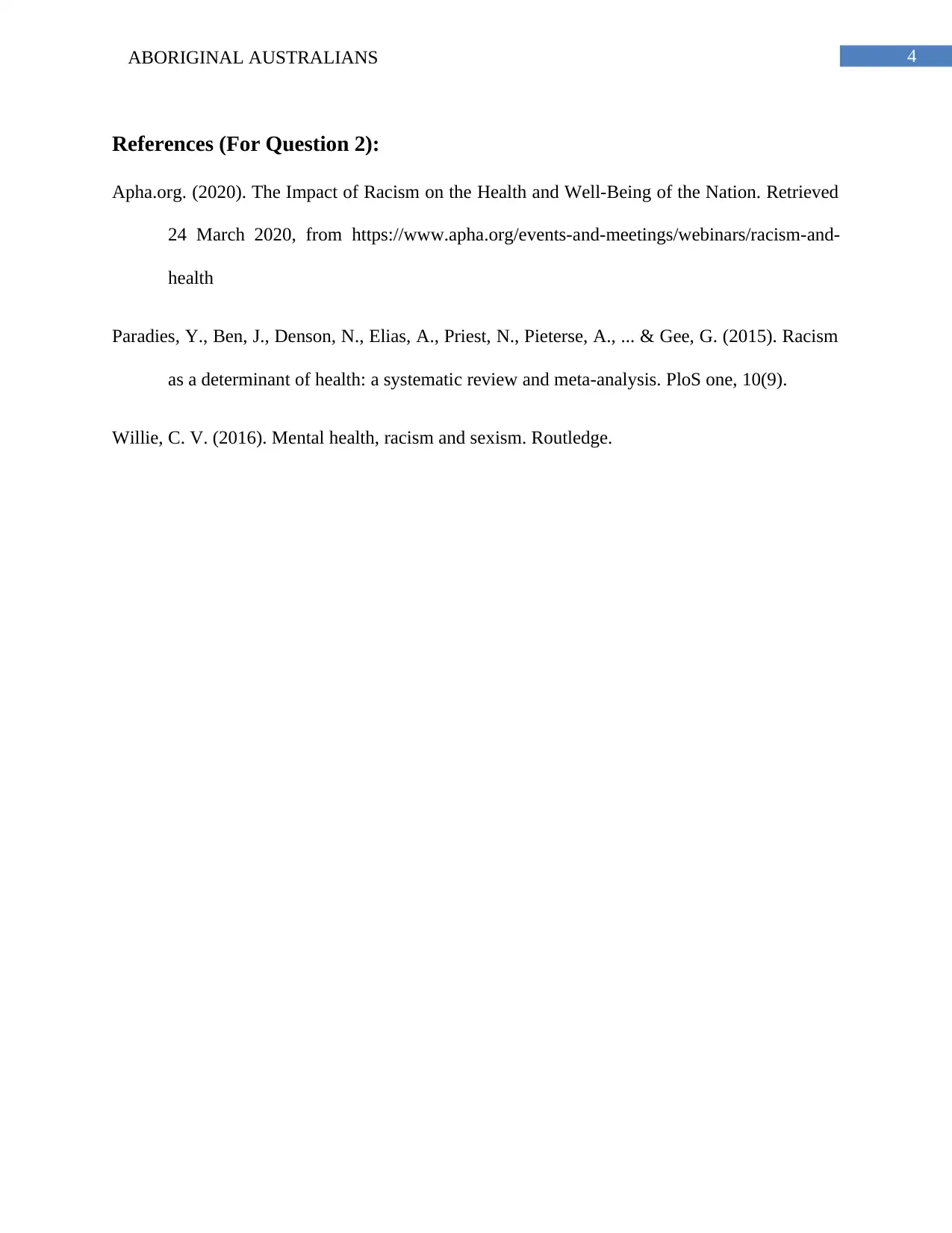






![[object Object]](/_next/static/media/star-bottom.7253800d.svg)